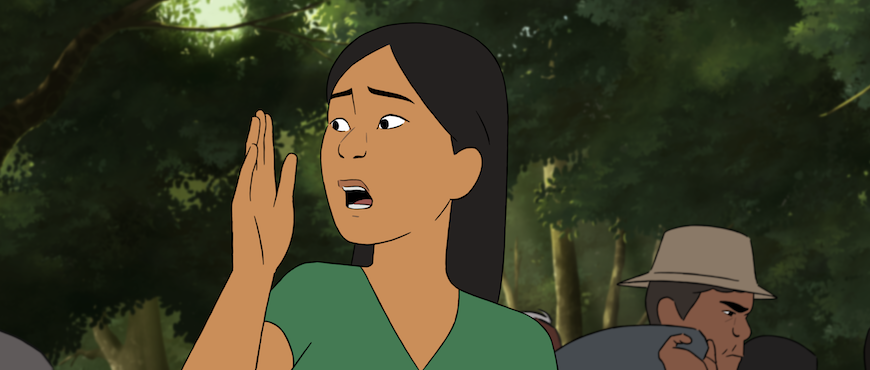Voting in our mayoral election
involves not only our preferences among the ten candidates but the
new process of ranked-choice voting.
RCV, or instant run-off, lets a
candidate reach the required fifty-percent-plus-one without wasting
time or money on a runoff election. We vote for our preferred
candidate by marking him/her as first choice; then there are circles
to fill in for second, third, and even ninth choice. Sounds simple,
but I've heard many misconceptions.
Indicating secondary choices is
optional. If you vote for only one candidate, your vote counts.
However, voting for secondary candidates cannot possibly hurt your
top choice: no one even looks at your second choice unless your top
choice has been eliminated. Each round of counting eliminates the
last place candidate. Where a voter for that newly eliminated
candidate has a next-choice marked, that next choice (if not already
eliminated) gets another vote.
Thus it's senseless to eschew
secondary choices to protect your preferred candidate. Refusing to
list secondary choices essentially says that if your candidate had
chosen not to run, and the other nine were all running, you'd
abstain. But it's your choice. One voter I know says Miyagishima is
the only real candidate, and that she'll vote for him and be done
with it. Others plan to rank their top nine.
My approach is to (a) identify my top
choice; (b) identify the people for whom I won't vote, for various
reasons; then (c) determine my preferences among the candidates who
aren't covered by (a) or (b).
Ken Miyagishima is my choice. He's
been a good mayor. He and the council have moved in some good
directions; he has both experience and a willingness to listen and
grow; and I'm not hearing allegations from his opponents of any big
errors or even a hint of corruption. He cares about the city, has
improved it, represents us well, and seems likely to continue on that
course.
Sadly, a majority of the ten
candidates are people whom I wouldn't want as mayor and won't help by
listing on my ballot. I like and respect several, while others sound
good, but I'm unconvinced. Some I don't trust, for good reasons.
One whom I consider a friend represents a small, extreme share of
citizens and buys into some odd conspiracy theories. Several seem
beholden to the wrong people, including one who says his campaign is
being managed by a woman I recall worked for a Koch Brothers-related
organization and favored the vicious, divisive, and dishonest city
council recall effort a few years ago. Another is only 20, and would
have had to articulate some special and compelling reason for us to
ignore his inexperience. Although some of these people are capable
folks, none matches Miyagishima; and most have some disqualifying
factor.
I'll mark Greg Smith as my second
choice, although back when the council didn't follow the City Charter
in dealing with the minimum wage initiative, I figured I'd never vote
for him for anything. He's capable; he cares about the city; and as
councilor he's been involved in good things the city has done, and
took the lead on some.
My third choice is Alex Fresquez. He
lacks the relevant experience some others have; but he's promising,
and I'm aware of no major negatives.
That's my ballot, anyway. Whatever
your preferences, please vote. (If you mark someone else first,
please consider Ken as your second choice.)
It matters.
-30-
[The above column appeared this morning, Sunday, 27 October, 2019, in the Las Cruces Sun-News, as well as on the newspaper's website and [presently] on KRWG's website. A spoken version will air during the week on KRWG and on KTAL (101.5 FM -- www.lccommunityradio.org), and is also available at the KRWG website.]
[Sorry not to give more detail concerning my opinions on the full list of candidates. That's partly a space consideration, but I'm also not wanting to be unduly negative. I appreciate the dedication of all who run. And I should mention that we discussed local races, including this one, with the candidates on KTAL, and undecided voters can listen to those on the archives at www.lccommunityradio.org]
[Next week I'll discuss several other local races, particularly the three Dona Ana Soil and Water Conservation District races, as many voters aren't following those. The DASWCD is more important than most folks suppose, and this year's vote is part of an important change from a somewhat one-dimensional board (seven who saw their primary task as helping ranchers and farmers, and who also held somewhat right-wing general political views that didn't reflect their constituency) to a more varied and environmentally-conscious board. I hope that board will continue to have a ranching presence, and am confident it will because two of the seven seats are appointed by the rather conservative New Mexico Soil and Water Conservation Commission. Some of these ranchers bring important, first-hand, special knowledge of our county to the table. However, they should not dominate the board, in my view. Each race reflects strong differences of opinion, although that's a little less so in one of the races.]
[I don't think I can post anything on 27 October without noting, with gratitude, that on that date in 1945, the folks in the picture below got married. The marriage lasted until her death in 1994.]
[Of course, a not entirely surprising result of that event was this:]
So if you don't like my columns, complain to these folks -- though I doubt they'll be much help to you. (If you like these Sunday columns, thank these folks -- or think about them for a moment, or say a prayer for 'em or light a candle or something.)






